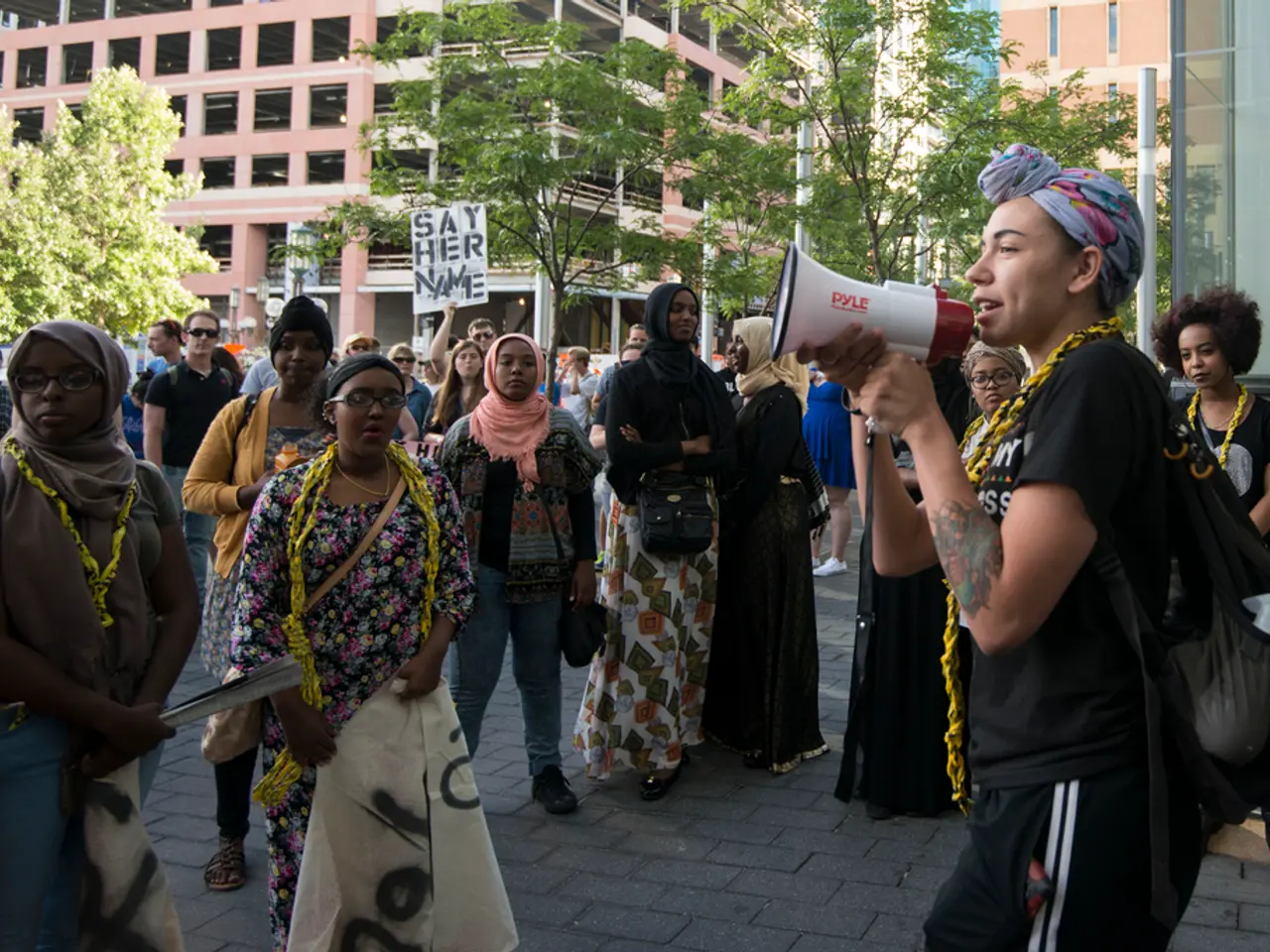Pakistan-based Afghans seeking German visas face potential deportation threat
Afghan Refugee Women in Pakistan Face Uncertain Future Amid Deportations and Limited Resettlement Options
In Pakistan, Afghan refugee women are living in a state of limbo, facing severe uncertainty and vulnerability due to ongoing government-led deportations and limited access to safe alternative pathways such as the German humanitarian admission program.
One such individual is Aziz Gull, an Afghan rights activist who fled to Islamabad in July 2024 and applied for a humanitarian visa through a German NGO. However, Gull, like many others, is still awaiting confirmation of her relocation to Germany under the German humanitarian admission program.
Similarly, ZK, a 40-year-old Afghan woman and journalist from Badakhshan province, also finds herself in a precarious situation. ZK fled to Pakistan in 2023 and has been awaiting relocation to Germany under the same program. However, her situation took a turn for the worse when she was arrested by Islamabad police and deported back to Afghanistan with her two sons in February.
The situation for Afghan women in Pakistan is dire. They are forcibly being barred from almost all areas of public life by the Taliban in Afghanistan. The Taliban has ordered the closure of beauty salons and barred women from going to gyms and parks. Women also can't go out without a male guardian. Outside the home, women and girls are required to hide not only their faces and bodies but also their voices in Taliban-run Afghanistan.
Many Afghan women in Pakistan are living in rented rooms, unable to legally work or rent housing, increasing their poverty and insecurity. This precarious situation limits their capacity to safely apply for or stay in limbo while awaiting admission or resettlement.
The current German government, under Chancellor Friedrich Merz, has pledged a tougher stance on asylum and irregular migration. However, the ongoing deportation offensive in Pakistan includes not only undocumented Afghans but also those with valid papers or awaiting resettlement in third countries such as Germany and the US.
The situation is worsened by Pakistan's increasing forced returns under an “Illegal Foreigners Repatriation Plan,” which the UNHCR strongly opposes, warning that forced deportations violate refugee protections and put women at particular risk under Taliban rule in Afghanistan.
UNHCR continues urging Pakistan to stop forced returns, especially for registered refugees, and to uphold the principle of non-refoulement. Meanwhile, aid agencies note that forced returns are straining Afghanistan’s already limited humanitarian resources, worsening conditions for returnees, especially vulnerable women.
In summary, Afghan refugee women in Pakistan are effectively living in limbo: at risk of forced deportation despite legal refugee status, facing heightened vulnerability and limited access to humanitarian protection or safe alternative pathways such as the German humanitarian admission program. The situation remains fluid and challenging as protection mechanisms in Pakistan and for applicants to resettlement programs struggle to keep pace with recent mass return policies.
- Amidst the uncertainty and vulnerability, society watches as Afghan refugee women in Pakistan grapple with government-led deportations and restricted resettlement options.
- The media spotlight shines on the plight of these women, many of whom are waiting for confirmation to relocate through programs like the German humanitarian admission program.
- Ashraf, a refugee mother, embodies the struggle as she waits for her migration to a safer country amidst the chaos and confusion.
- Currently enrolled in an education-and-self-development program, she aims for personal growth and a better life for her children, but war-and-conflicts and bureaucratic hurdles threaten to derail her goals.
- Career development opportunities are limited for many of these women, as they are barred from employment and face discrimination in the job-search process.
- Horrific incidents like car-accidents and fires serve as sobering reminders of the dangers these women face daily in an unfamiliar and inhospitable environment.
- In the face of adversity, these women exhibit resilience and determination, seeking help from politics-and-government officials and humanitarian organizations to ease their plight.
- Struggling with crime-and-justice issues, many of these women find solace in the general-news, hoping to stay informed and navigate their unmapped future.
- As the world watches, it is crucial for individuals, organizations, and governments to support these women and aid them in their goal-setting and skills-training endeavors for a better, self-sufficient life.
- The future of Afghan refugee women hinges on support from the international community, including the scaling-up of resettlement programs and investments in education, healthcare, and economic opportunities to ensure their safety and well-being.
- On the basketball court, Nargis passionately plays her game, reminding everyone of her dreams and aspirations: to excel in sports, pursue career development opportunities, and one day possibly participate in the prestigious NCAA-Basketball tournaments, symbolizing a brighter, more hopeful future awaiting these heroic women.




